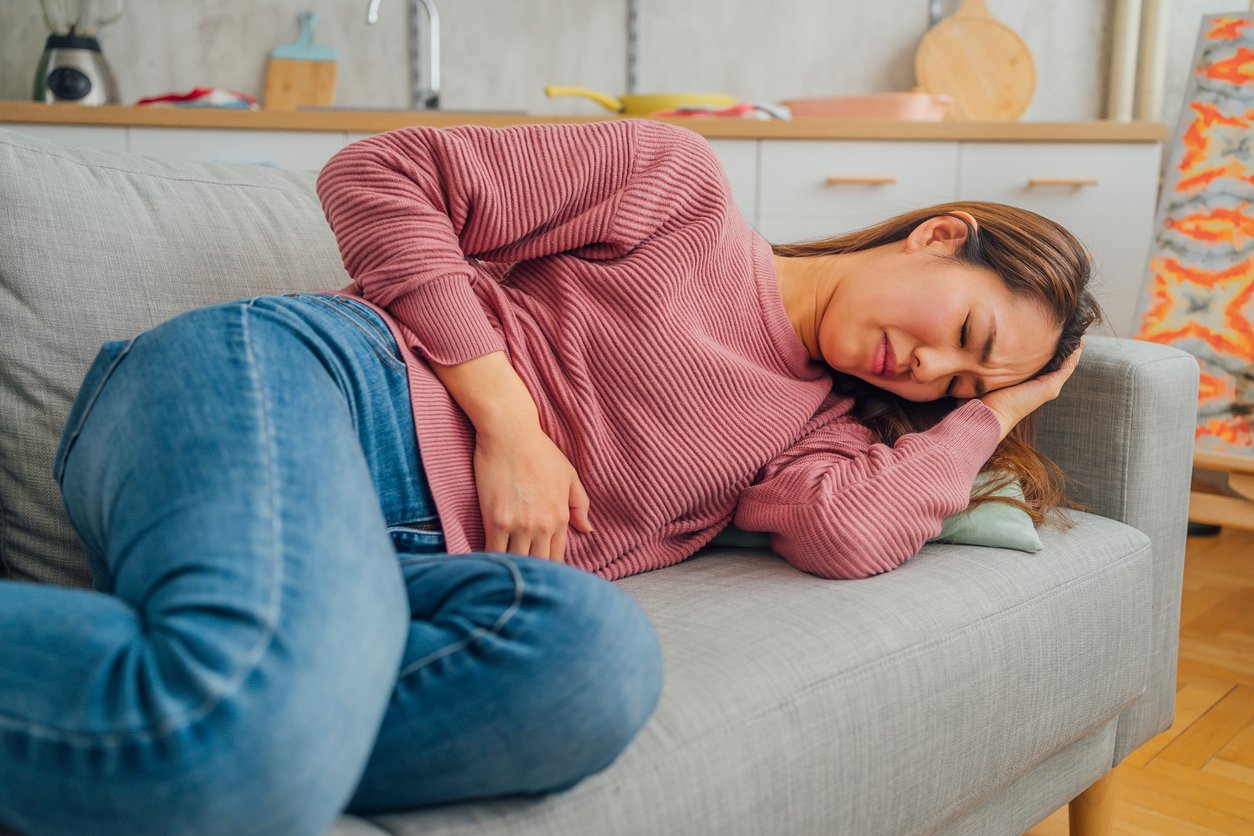Endometriosis and how to manage pelvic pain
An estimated 1 in 10 menstruators has endometriosis.
Stephanie Morris, MD, is a Mass General Brigham gynecologic surgeon who practices in the Department of Obstetrics and Gynecology at Newton-Wellesley Hospital. Here, she shares the symptoms of endometriosis, endometriosis treatment options, and advice for managing the condition.
This article was originally published by Mass General Brigham.
What is endometriosis?
Endometriosis is a condition that is often painful. It is when pelvic tissue grows outside the uterus. This tissue can grow on the membrane that lines the pelvis, ovaries, fallopian tubes, and other nearby organs, including the bladder and bowels. Inflammation can lead to scar tissue and can cause organs to fuse together, which leads to chronic discomfort and pain.
What are the signs of endometriosis?
The most common symptom of endometriosis is pain. Other symptoms can include:
-
Painful menstrual cramps
-
Stomach or back pain
-
Pain during or after sex
-
Difficulty getting pregnant
-
Pain when urinating or moving your bowels
This recurring pain can be frustrating and exhausting to manage.
 It can take time for providers to diagnose endometriosis. There are many reasons for this. Sometimes, people think their period pain is normal, so they try to manage on their own.
It can take time for providers to diagnose endometriosis. There are many reasons for this. Sometimes, people think their period pain is normal, so they try to manage on their own.
Dr. Morris encourages people who experience these symptoms to seek treatment. "It's not normal to have pain so intense that you have to miss work or school, or you cry during sex," she says. "If you're having pain that interferes with your daily life, it's important to talk with your doctor."
What is the treatment for endometriosis?
Researchers don't yet fully understand what causes endometriosis. But there are endometriosis treatment options that can help you manage symptoms.
Your doctor may suggest over-the-counter pain relievers such as ibuprofen (found in Advil or Motrin), or acetaminophen (found in Tylenol).
Your doctor also may prescribe hormonal medications. These can ease pain and stop or reduce your menstrual flow. They include:
-
Oral medications, such as birth control pills or medications that can temporarily stop hormonal production
-
Hormonal intrauterine devices (also called IUDs), which are T-shaped birth control devices placed inside the uterus
-
Hormonal injections or shots
All medications can have side effects. And a treatment that works for one person might not work for another. It can take time to find the right treatment for you.
"It may take some trial and error to find the treatment that's right for you," says Dr. Morris. "Just because one medication doesn't work for you, doesn't mean another won't be better."
If medications don't help enough, or in more severe cases, your doctor might recommend laparoscopic surgery. This is when a surgeon uses a laparoscope, a thin tube with a lens and light, to see and remove endometriosis lesions. Laparoscopy is minimally invasive. This means it requires smaller cuts, fewer stitches, and a faster recovery time than traditional surgery.
How can I manage my endometriosis pain?
In addition to hormonal treatment and surgery, patients with endometriosis may need support from a team of providers with varied expertise. Providers may prescribe:
-
Pelvic floor physical therapy for musculoskeletal pain or pelvic floor dysfunction
-
Medication to reduce pain caused by overstimulated nerve fibers
-
Dietary changes to prevent constipation and decrease bloating and inflammation
Patients can also try other at-home ways to relieve pain, including taking warm baths or using a heating pad.
Many people find endometriosis relief using alternative therapies alongside medicine. These include traditional Chinese medicine, homeopathy, and acupuncture, among others. But Dr. Morris recommends checking with your provider first: "It's important to discuss your approach thoroughly with your doctor as some therapies might conflict with others and limit their effectiveness."
Can endometriosis affect mental health?
Coping with chronic pain is exhausting and frustrating. It can make it hard to work or fully take part in activities you enjoy.
In some cases, it helps to be honest with your loved ones about your feelings and needs. A mental health professional or a support group is another great way to share your experiences and learn ways to cope.
“Remember, you are not alone, and your symptoms are not just in your head," says Dr. Morris.
Endometriosis can be tough to live with. The good news is that, with help, you can manage your symptoms and live a full, quality life.
